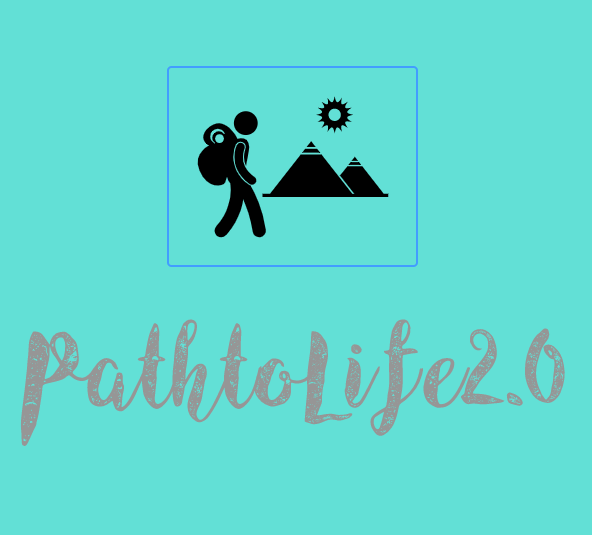
There’s a lot written about happiness, and these days, we even search for life hacks to overcome “hedonic adaptation” – how you’re initially very happy with a new situation or purchase but soon return to your ‘happiness set point’*. Happiness sells. And you can see why; it’s the prototypical, unadulterated positive emotion. Who wouldn’t want it?
But like all emotions – it’s fleeting, transient by nature. We’re simple creatures in a way – we’re a walking brain responding to stimuli that hit our senses, and we’re instinctively drawn to pleasure and retract away from pain. We draw a lot of meaning from such behaviours, including our sense of identity. When what I liked and disliked all changed seemingly overnight during pregnancy, it really messed with who I thought I was. Anyway, crudely put, pleasure = happiness/seek. Pain = unhappiness/aversion.
Just to take the point further about the transience of feelings, when we say we love someone, we’re not feeling that love every single moment, if we’re honest! At least, not after the initial rush of romance. It would be just too distracting. What we really mean is that we’re committed, we care, it’s a form of expression to say we value you. That to me is ‘a way of being’.
And so happiness in the pleasure sense is transient -it’s not really biologically possible to sustain it. We can’t expect ‘things’ to make us happy – it’s an illusion to begin with, a convenient way of phrasing in language what is actually happening. What we really mean, I think, is ‘I respond with pleasure in this situation’. It’s a chemical or hormonal reaction depending on how our clever but imperfect brain appraises that situation. Someone brings you a lovely present? You feel happy. You buy something that you really want. You feel happy. It’s a biochemical drug and you hanker after it. It’s what motivates the human animal to acquire stuff and status to help ensure security.
I noticed that when I was practising mindful meditation and mindfulness pre-motherhood just how much of a slave I am to the emotions that erupt to the surface. They happen to us, then we (choose to) own them, then they own us. If we didn’t own them then we’d feel pretty out of control, wouldn’t we? So, I feel there’s a big overlap with identity somewhere. And sometimes also we buy things to fit that identity that we’ve built, but maybe we’re creating an illusion.
If not happiness, then what?
When I think about what I’m looking for, yes of course I enjoy pleasure as much as the next person! But the word that comes to mind is ‘fulfillment’. Although I can’t deny that there’s a feeling attached to this, fulfillment seems to be more a ‘way of being’ (a bit like how ‘love’ also is) than pleasure. It’s that sense you get from achieving something, a satisfaction. Something that gives you a sense of purpose, an alignment between doing and being, perhaps.
When someone feels fulfilled, there is a sense of happiness. Yet I think we’d all agree that it’s a different species from the joy you get from buying a fantastic sleek new top-of-the-range laptop at an unbelievable price. You’re very pleased! It does lots of jazzy things you hadn’t even needed or were looking to buy!
So, my question is: How will this new machine empower you to work towards a goal or goals that would make you feel fulfilled? If that’s too grand, how does it make life easier so that it removes an ongoing stress (if you are)? Purchases to help make life less stressful may also be worthwhile, because – put simply – stress kills.
Fulfillment vs happiness
Fulfillment has similarities to happiness but I’d argue from my experiences that they’re also distinct. In fact, the things that have given me most fulfillment have often made me very unhappy in the process. Here are a couple of examples I’ve reflected on today just from my own life:
- Parenthood often entails unhappiness. It’s not a popular thing to say, but it’s true. I was shocked pre-parenthood to read that people with kids are less happy than those without. Now I believe it (though to be fair, it’s more nuanced that that). It’s full of frustration, worry, guilt, exasperation, more worry, topped off with a lack of sleep and time for doing anything you personally really enjoy. Don’t get me wrong, there’s moments of sheer joy too, but not as many of them as the rest of it! …And yet, I find motherhood fulfilling. When I think of Little Firelite and how well he’s doing, how happy he is generally, it makes me feel full to the brim. I can’t describe it any other way. I never truly felt raising a child was an achievement before being a mum, but I’ve done a U-turn on that one. Hats off to any parents reading!
- Parts of my job make me unhappy: the challenges, the expectations, doing more for less. Not feeling good enough. The paperwork. The targets we need to reach that I don’t really value. But there are aspects that I find fulfilling. (If not, I wouldn’t have stayed in the job for 17 years.) Often these are the challenging bits. Maybe lots of frustrations in the process but we pulled it off! Or I help someone to develop themselves, someone I wanted to help but ultimately is very hard work and you wonder why you went out of your way. In the end, it’s very satisfying.
- Being in a relationship… You get the picture! Generally speaking, creating a life with high life satisfaction and fulfilment often requires lots of deferred gratification, self-discipline or sacrifice. Holding back from responding to the whims of the moment. Having to deal with another human being who has their own mind and habits! The audacity of it all! 😛
Soul searching for Life 1.2 and financial independence

I’m not sure everyone is seeking fulfillment – some people seem to have quite a low bar at least; perhaps this is because they prefer or need an easier ride and value comfort. Mr Firelite certainly suffers no angst over his work; he likes to solve problems and when he solves one, he is happy enough. It certainly makes him a more relaxed person!
For me, personally, I need fulfillment. I have a fulfilling life generally. I’m definitely living more the kind of life I wanna live than most people I see around me do (probably). Yet something is missing and I hope to remedy that soonish. But perhaps this is my ‘angst set point’. This sounds like a book title, doesn’t it? And possibly a topic for a future post?! Hm…
When it comes to spending money and time of stuff, I think the trick must lie in finding things that give us a thrill or enjoyment and recognising that it’ll be shortlived, but if well planned, they might contribute to fulfilling activities or relationships, and/or remove ongoing stress or problems – which ultimately is what longer-term happiness must be, right?
An example is an evening out with good friends – this may bring temporary happiness but also over the longer term having friendships and a support network around you must be part of a fulfilling life for most people. That’s if you value friendships, which I happen to do. On the other hand, watching films may just bring you pleasure. Yet if you start a film critique blog, you may find it fulfilling!
One of the reasons I’m thinking about all this is because I’m starting some free sessions with a life coach from tomorrow. I’m sure I’ll reflect on this topic more over the coming weeks, and ponder how I might integrate pleasure-fulfillment aligned activities. I guess this blog is one of them. Thanks to anyone who has read or liked my posts so far. It’s a new world to me, and I appreciate it. I definitely find reflecting my thoughts here enjoyable and fulfilling. And hopefully fulfilling my commitment toward that midlife gap year!
I welcome any thoughts on this… Do you have ideas that differ from my ramblings? What makes you happy and what makes you fulfilled? How often do they overlap? Can you get fulfillment without the hard work?
______________________________________
- *Our happiness set point is our ‘natural’ or ‘default’ level of happiness that we’re largely born with, though I personally think it’s also influenced by our childhood circumstances and perhaps our culture. Research has suggested that mental health problems before the age of around 26 should be considered extensions from childhood mental health, and for many these will resolve, and therefore I feel that this alleged ‘set point’ isn’t really stable until well into adulthood. I know that in my early 20’s, I wasn’t as happy as I have been since then. People can change.

